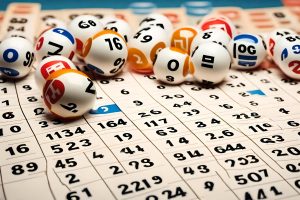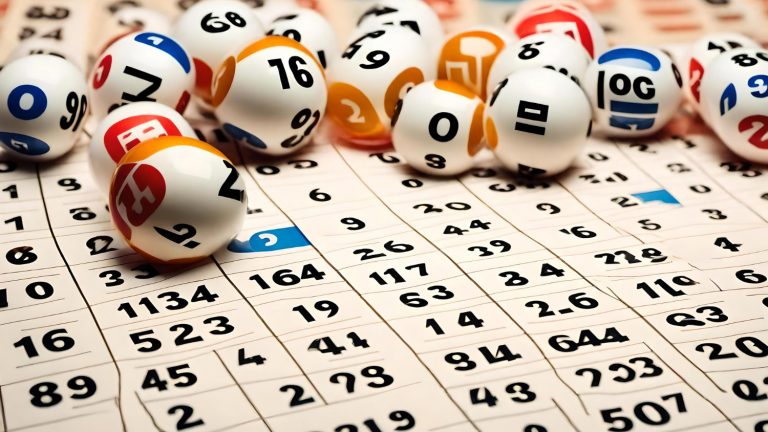If you’ve ever been to a land-based casino or have played casino games online, you know that roulette is one of the most popular titles in the gambling scene. This thrilling game, also known as the “little wheel” or “devil’s wheel’” game, has captivated players for centuries because of its exciting peculiarities that make the outcome of each round practically impossible to predict.

Beyond its gameplay mechanics, the game itself has always been shadowed by a rich tapestry of superstitions and beliefs as players try to beat the system and take home every penny they can. So, in today’s post, we explore the fascinating world of roulette and its associated superstitions. We will see how these beliefs reflect the human inclination to seek patterns to maximize fortune in the unpredictable realm of chance.
Lucky Numbers
In the “little wheel” game, numbers hold a special significance, and players often develop preferences for specific ‘“lucky” ones. These digits can be based on personal significance, cultural beliefs, or even historical events.
For example, some people believe their birth dates are their lucky numbers. Meanwhile, others are sure that their anniversaries are lucky since it’s when they meet their significant others. Interestingly, many of these lucky numbers in one culture tend to be unlucky in another one, as you’ll notice in the table below:
| Number | Culture/Region Associating it With Luck | Culture/Region Associating it With Bad Luck |
| 3 | China, most of Europe and the USA | Vietnam and Japan |
| 4 | Australia, European and North American countries | China and Japan |
| 7 | Japan, India, the USA and most of Europe | China, Vietnam, Thailand |
| 8 | China, Japan, Vietnam | South India |
| 13 | Italy, China, France, England | Most of the Western World |
Well, whatever the case, the belief in lucky numbers adds an element of personal attachment and excitement to the game. It then becomes a common element for the player when they start winning whenever they choose a segment with their ‘lucky’ number.
Biased Wheels
Another mesmerizing aspect of roulette superstition revolves around the idea of biased or rigged wheels. Some players believe that specific wheels are not perfectly balanced, leading to a bias towards particular divisions of the wheel. This belief emerged in the early days of this table game when mechanical imperfections in wheels could indeed cause predispositions.
Nonetheless, even though modern roulette wheels are accurately designed and tested, the superstition of biased wheels is still popular among gamblers. This is because players believe casino owners do this intentionally to shift the odds in their favor.
Hot and Cold Numbers
The concept of hot and cold numbers is a superstition that implies specific segments of the wheel are likely to present themselves more than others. Hot numbers are those that have appeared repeatedly in recent spins, leading players to believe they have a higher chance of appearing again. On the other end of the spectrum, cold ones are those that have appeared fewer times in spins, leading players to presume they are less likely to show up. This superstition originates from the human tendency to seek patterns and assign meaning to random events.
The Gamblers’ Fallacy
Also known as the Monte Carlo fallacy, this refers to a mistaken belief that previous outcomes in a game of chance will have an impact on future results. The misconception is essentially based on the incorrect assumption that the opposite of an earlier common event will happen.
For instance, if the ball lands on a black section several times in a row, some players might believe that red is more likely to appear in the next spin. So, even after reality has constantly proven that each spin of the roulette wheel is an independent event with no connection to previous outcomes, the player will keep holding on to this belief.
Ultimately, the gamblers’ fallacy underscores the risks of relying on superstitions rather than aptly understanding the true nature of odds and probability.
Rituals
Have you ever seen a gambler do something odd every time they play a round? Well, some players have developed their peculiar personal rituals to bring luck while playing the game. These rituals can range from rubbing the chips or chanting an incantation before placing a bet, among other strange routines.
Even though they have absolutely no scientific basis, these actions provide psychological comfort and a sense of control in an inherently random game. Thus, rituals have become a norm for roulette players, adding entertainment and personalization to the unpredictable game.
Avoid Superstitions and Embrace Rationality!
Having been an incredibly popular casino game across the centuries, superstitions that surround roulette mechanics have always added a layer of anxiety, personalization, and a sense of control to the experience. Nonetheless, it is essential to remember that superstitions are based on personal beliefs rather than any tangible scientific evidence. So, like any other gambling game, roulette remains a game of chance, and understanding the true nature of probability is crucial for enjoyable and responsible play.
